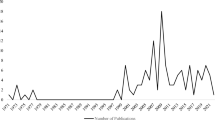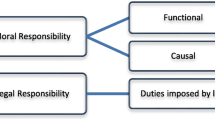Abstract
This article examines the operation of codes of practice in the United Kingdom. It is concerned with those codes of practice which, though initially prepared by various trade associations, are brought into operation only after consultation with and approval by the Office of Fair Trading. After briefly explaining the statutory background and scope of the nineteen current codes (listed in the Appendix), the author discusses three aspects.
First, do codes improve consumers' rights? The codes generally both recite selectively the rights of consumers under the existing law and add to those rights by recommending ameliorating trade practices. Examples are given of existing rights and, more extensively, of such recommended improvements. The question is raised whether the aggregation of legal rights and suggested practices may lead to confusion for consumers.
Secondly, the monitoring of codes is considered. Monitoring is undertaken by the Office of Fair Trading to discover the degree of compliance by members of trade associations; reports on the laundry, footwear and motoring codes are used as illustrations.
The third issue is viewed as crucial — the need for sanctions for non-compliance and the problem of enforcing the standards set by the codes. It is suggested that an extension of the “assurance” procedure under Part III of the Fair Trading Act 1973 may offer a solution, or more contentiously, that the creation of a new statutory duty “to trade fairly” could provide the answer.
Zusammenfassung
Der Beitrag untersucht die Arbeitsweise von Verhaltenskodices (Codes of practice) in Großbritannien. Er beschränkt sich auf solche Selbstregulierungen, die zwar von Verbänden der Anbieterseite formuliert worden sind, aber erst nach Verhandlungen mit und Zustimmung durch den Director General of Fair Trading Verwendung finden.
Nach einer kurzen Erläuterung des gesetzlichen und verbraucherpolitischen Hintergrundes und Umfanges der gegenwärtigen 19 Kodices (die im Anhang einzeln aufgeführt werden), untersucht der Beitrag folgende drei Aspekte:
Er stellt zunächst die Frage, ob Kodices die Rechte von Verbrauchern verbessern. Die Kodices wiederh olen in selektiver Form die gesetzlichen Rechte der Verbraucher und ergänzen sie vereinzelt um Verbesserungen von Handelspraktiken. Für die Wiedergabe und vor allem Verbesserung — etwa Einführung einer Untersuchungspflicht im Gebrauchtwagenverkauf, Widerrufs- und Erprobunsgrechte — werden Beispiele gegeben. Die Aufzählung von Rechten und Praktiken kann allerdings zur Verbrauchertäuschung führen.
Zweitens wird die Überwachung der Kodices untersucht. Das Office of Fair Trading überprüft in unregelmässigen Abständen die Einhaltung der Kodices durch die Mitglieder des Verbandes. Dabei stellen sich Mängel heraus. So ist etwa die freiwillig übernommene Inspektionspflicht nur von einer Minderheit der Mitglieder des englischen Gebrauchtwagenhandelsverbandes eingehalten worden. Andererseits schneiden Verbandsmitglieder in der Einhaltung von Standards besser ab als Nichtmitglieder.
Der dritte Problemkre is wird als zentral angesehen, nämlich die Notwendigke it effektiver Sanktionen im Falle der Nichteinhaltung von Standards und das Problem der Umsetzung der in den Kodices gesetzten Verhaltensweisen. Das englische Zivilrecht bietet hierfür keine hinreichende Grundlage; die Kodices werden nicht zum Vertragsbestandteil. Verbesserungen sind über das Verwaltungsrecht zu erreichen. Optimal wäre die Einführung eines Lauterkeitsgebotes in das britische Handelspraktikenrecht.
Similar content being viewed by others
Reference
Borrie, G. (1980). Laws and codes for consumers. Journal of Business Law, 315–325 at p. 324.
Additional information
Geoffrey Woodroffe is Director of the recently inaugurated Centre for Consumer Law Research, Department of Law, Brunel University, Uxbridge UB8 3PH, England.
Rights and permissions
About this article
Cite this article
Woodroffe, G. Government monitored codes of practice in the United Kingdom. J Consum Policy 7, 171–184 (1984). https://doi.org/10.1007/BF00380477
Issue Date:
DOI: https://doi.org/10.1007/BF00380477




